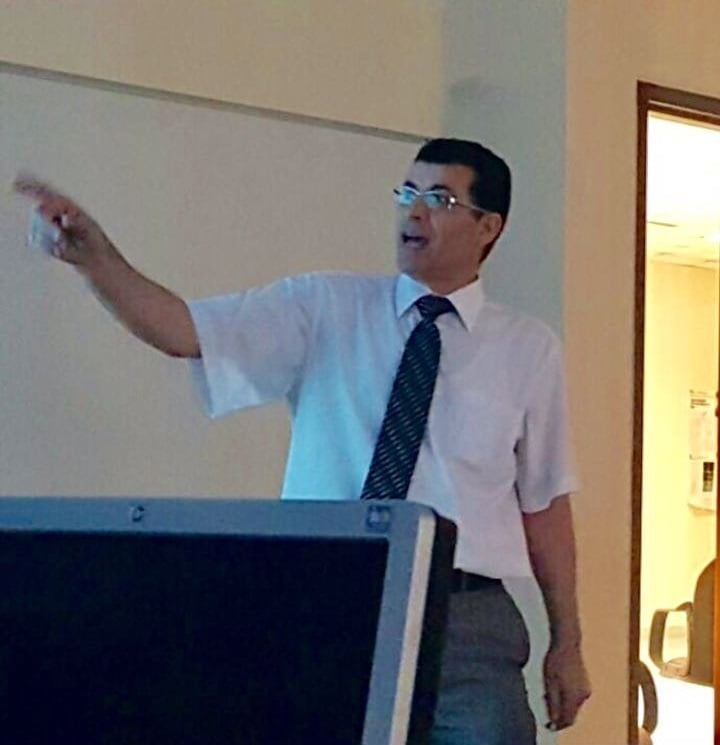
Within the series of scientific meetings organized by the College of Applied Sciences under the supervision of Dr. Walid bin Jameel Altif, the Dean, the scientific meeting of the Biology Department was held on Wednesday, 21st Shaaban 1438H. This is considered the last scientific meeting of this semester 1438H; itt was titled:
(Bioplastics Production Technology)
Presented by Prof. Dr. Khaled Al-Banna
Professor at the Biology Department
At the meeting, which was attended by a number of Applied Sciences College affiliates and the concerned, Prof. Dr. Khaled Al-Banna stated that the recent trend of the world's attention showed interest in biodegradable bioplastics. He explained that biodegradable bioplastics formed an environment-friendly alternative to plastics produced from non-biodegradable and polluting petroleum products.
He added that microplastics were considered one of the promising materials in such domain. Among such materials was Polyhydroxyalkanoates, which could be stored by many microbes inside the cell under special conditions, because of their special genes that encoded the enzymes responsible for synthesis in such microbial species. Such materials also had characteristics similar to polypropylene plastics. He noted that the difference between the two types was that bioplastics were biodegradable and environment-friendly, while microplastics were used for many medical and industrial purposes. This was because microplastics had distinctive properties enabling it to be applied in many domains, in addition to its biodegradability.
Prof. Dr. Khaled Al-Banna also declared that what was new in such domain was that a group of such substances were produced, however containing the (thioester compound) instead of the (ester compound), which increased their strength and improved their properties. It is worth mentioning that such microplastic products are now used on a wide scale in the manufacture of smart surgical threads that do not need to be disabled after wound healing and operations. They are also used in the production of smart stents, and as bandages and coating materials for antibiotics and pharmaceuticals that need to go slowly inside the human body. In addition, microplastic products are used in the manufacture of medical sensors.
In the same context, Prof. Dr. Al-Banna illustrated that due to the high production cost of such materials, which amounted to 4-5 dollars/KGM, compared to the fossil-fuel plastics, the production of which cost only one dollar; research tended to reduce the cost price. This was through the use of agricultural waste, such as molasses or cheese leachate, or via productivity improvement by adjusting the optimal conditions for production. Moreover, Prof. Dr. Al-Banna added an interesting point in such domain; some research was carried out on the transfer of the genes responsible for the synthesis of such materials in bacteria to sugar beet, and therefore production could be carried out in large quantities, thus reducing the cost.
After the meeting, a scientific discussion took place between staff-member attendees and Prof. Dr. Khaled Al-Banna on such subject.
At the end of the meeting, Prof. Dr. Al-Banna was honored by Prof. Dr. Basem Hussein Asghar, Vice-Dean of the College of Sciences for Graduate Studies and Scientific Research. He also received a certificate of appreciation for his participation in the presentation of such scientific meeting.